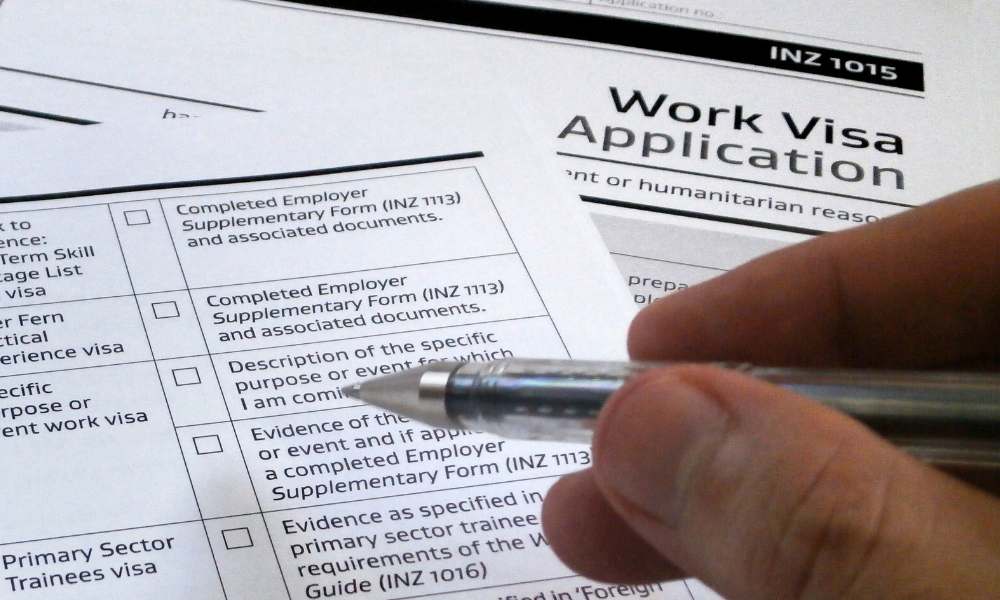
The government changes provide relief to businesses hit hard by the global worker shortage

Access to Working Holiday Scheme visas has increased after the government announced changes to alleviate the strain on businesses scrambling to find staff. The temporary changes aim to supply kiwi businesses with 12,000 additional workers over the next year.
Working Holiday Scheme changes include:
The changes mean up to 12,000 more working holiday makers may come to New Zealand over the next 12 months. "These measures are about providing immediate relief to those businesses hardest hit by the global worker shortage," Immigration Minister Michael Wood said in a statement.
“We have listened to the concerns of these sectors and worked with them to take practicable steps to unlock additional labour,” continued Wood.
Read more: Government pushed to mandate pay gap reporting for large business
The news comes as great relief to New Zealand’s tourism and hospitality sectors who after two years of covid-related challenges now face one of the most severe staff shortages in history. Earlier this month Kiwi economist Benje Patterson estimated that tourism and hospitality businesses lost out on $3 million in revenue in the month of June alone when they were forced to close their doors on normal trading days due to lack of staff.
Chief Executive at Hospitality New Zealand, Julie White said even though the doubling of numbers under the Working Holiday Scheme and the extension of visas are temporary, they will make a big difference to hospitality businesses struggling without enough staff.
“Having access to more staff will definitely help businesses open their doors for more days and for longer each day, and it will help improve the well-being of many owners and operators and their staff who have been working long shifts,” said White.
The news is also being welcomed by New Zealand’s tourism industry – "We are hopeful this will help to relieve some of the immediate pressures on employers," said Rebecca Ingram, Chief Executive of the Tourism Industry Association (TIA).
Read more: Government introduces Fair Pay Agreements
Additionally, the government has introduced sector agreement settings that provide limited exemptions to the median wage requirement for hiring migrant workers on an Accredited Employer Work Visa.
Care workforce: Access to migrant workers for care and support workers at Level 3 of the pay legislation ($26.16), a two-year work to residence pathway for migrant care workers beginning when they reach the Level 4 pay rate, and a review in two years’ time.
Construction and infrastructure: Access to below median wage roles without a cap for specified occupations with a $25 wage threshold, with a review in two years’ time. The wage threshold would be updated each year to reflect changes in the median wage to maintain its relative value. (ie 90 percent of the median wage).
A $25 wage threshold is already in place for a number of construction and infrastructure roles, and this will continue until the sector agreements come into force from 31 October.
Meat processing: Access to migrant workers for entry-level meat processing roles in the red meat and pork processing sectors, at $24.00 per hour with a cap on the number of visas set at 320; to be replaced with a Pacific programme from 2024. Migrants taking up these places will receive 7-month visas and the wage threshold will be updated each year to reflect changes in the median wage to maintain its relative value. (ie 86 percent of the median wage).
Onshore processing: Access to migrant workers for seafood processing roles at $24.00 per hour with cap on the number of visas set at 600; to be replaced with a Pacific programme from 2024.
Migrants taking up these places will receive 7-month visas and the wage threshold would be updated each year to reflect changes in the median wage to maintain its relative value. (ie 86 percent of the median wage).
Sea-based roles: Access to migrants on the Foreign Fishing Crew visa at minimum wage plus $4 per hour with a cap on the number of migrants set at 940. The wage threshold will be increased each year towards the median wage, but the cap will remain in place indefinitely.
Seasonal snow and adventure tourism: Access to migrant workers in specified seasonal snow and adventure tourism roles at $25.00 per hour; the wage threshold will be increased each year until the sector agreement ends in 2025.
Transitional arrangements are already in place to allow specified tourism and hospitality roles to be recruited on Accredited Employer Work Visas below the median wage until April 2023.
For any role regardless of pay:
Migrants with open work visas (like students and Working Holiday Scheme participants) will be able to work in any role for any pay rate above the minimum wage.
For roles paid at or above the median wage:
The Accredited Employment Work Visa (AEWV) is available for employers who wish to recruit migrant workers for roles paying at or above median wage. This visa type is uncapped and open to migrant workers from anywhere in the world.
For roles paid below the median wage:
The sector agreement will provide a pathway, via the AEWV, for employers to hire migrants in certain roles where they are paying below the median wage. There is a limit on numbers for two of the sector agreements.